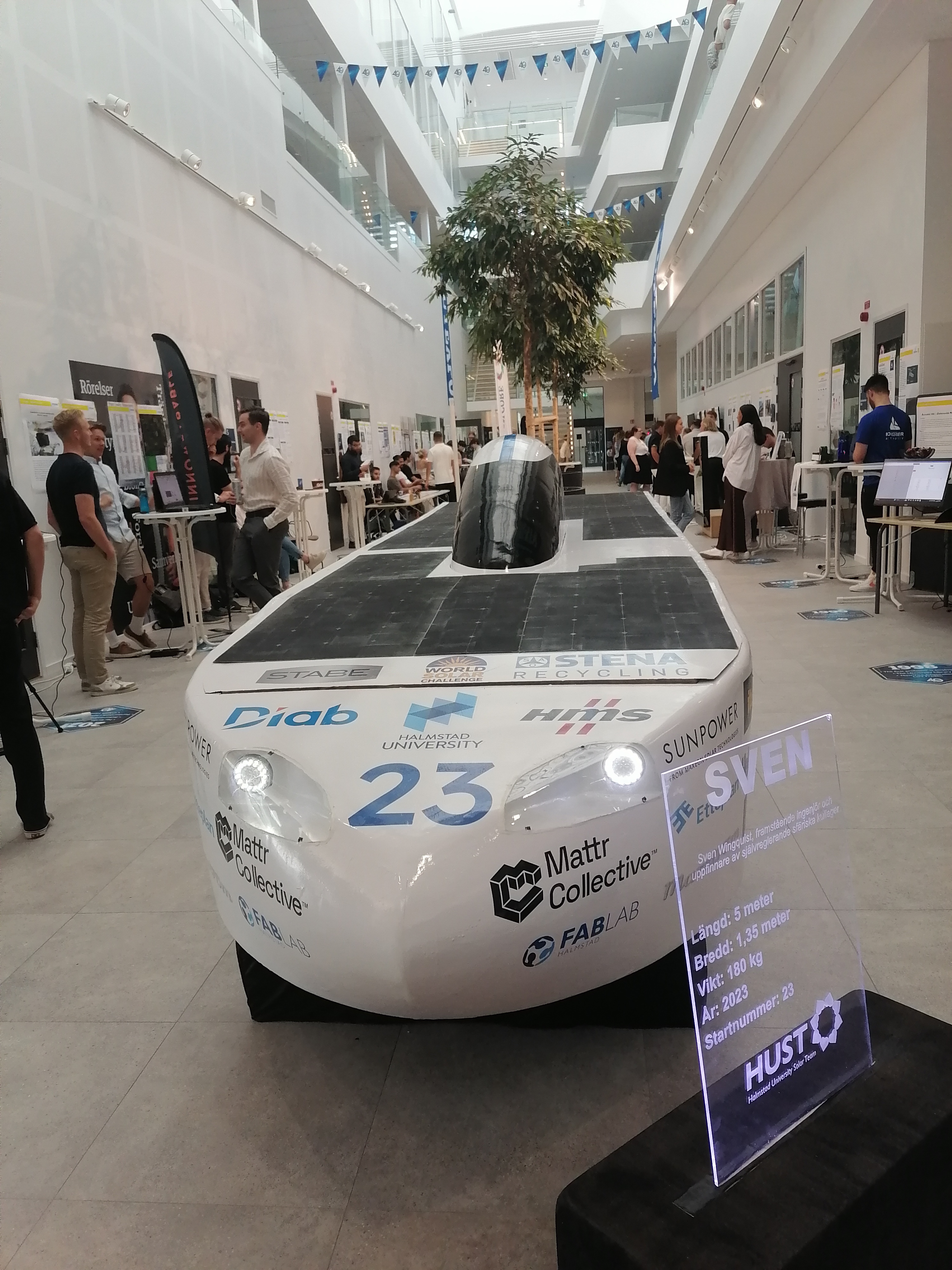Shahid Hafeez, Khuram Shahzad and Mona Enell-Nilsson
While writing this article in a relatively hot Finnish summer, sitting in a cosy place and air-conditioned by renewable energy sources. Yes, you read it right, with the will and the right attitude, we can achieve a net zero environment. We have a few good examples of energy transition from fossil fuels to renewable energy sources, yet, at a large scale, we depend heavily on fossil fuels to meet our energy needs. However, these best-case scenarios explain that it is possible to accelerate our transition from traditional energy to renewable energy sources.
What could be done to accelerate this transition?
Looking for an answer to this question, we came up with many propositions and diffusion models. Among many promising pathways, one of the most compelling is to raise awareness and knowledge of renewable energy systems to the broader society, particularly students, who are believed to be future entrepreneurs and leaders and hold decision-making positions in the future. EntRENEW (a research project funded by the European Union’s Erasmus+ programme) enables students to address the challenges of Europe’s future sustainable prosperity and the transition of energy sectors towards decarbonisation (as part of the European Green Deal).
Intending to increase university-level students’ competencies, skills, and knowledge on entrepreneurship in renewable energy systems, the project partners of EntRENEW (The Association Leonard De Vinci France, University of Vaasa Finland, Universitat Politecnia de Valencia Spain, Hogskolan I Halmstad Sweden, Europroject Bulgaria and Vrije Universiteit Amsterdam Netherlands) developed a trans-disciplinary HE blended-learning course in Entrepreneurship in Renewable Energy (ERE) at the intersection of entrepreneurship and technology (smart, sustainable and renewable energy applied studies).
What makes the course methodology unique?
The blended learning course aims to build the entrepreneurial capacity of students in renewable energy systems through a unique methodology. We utilized various methodological approaches to train students to begin their entrepreneurial journey in the field of renewable energy systems. The uniqueness of the course lies in two aspects; one combines two disciplines: renewable energy systems and entrepreneurship, making this course attractive to students from different educational backgrounds and disciplines. Besides, course methodology follows a process model that combines different methodical approaches and makes a systematic effort to achieve intended outcomes.
How did we do it?
We followed a process model in identifying and developing course content, activities, and student learning outcomes.
- Need analysis:
- In order to ensure the relevance, impact and sustainability of the programme, the project incorporates the empirical results of previous literature on interests and resistance towards climate change. While for the course content development, from the beginning, we actively engaged with stakeholders related to the course and professors, students, and industry representatives. Together with several students from partner higher education institutes, we identified students’ needs, capacity, and training levels. The project has examined the intrinsic and extrinsic motivations that drive students to join a programme in entrepreneurship in renewable energy, teachers to lead it and institutions to expand its contents. In addition, engaging with several companies, incubators, and consultancies helped us in receiving feedback and recommendations on the practical relevance of the course content. Such an active stakeholder engagement made our methodology unique in delivering theoretical and practical insights to prospective students.
- Pedagogical methodology:
- The pedagogical methodology uses blended classroom learning, e-learning, and face-to-face collaboration-based activities. This course teaches students to identify gaps in sustainable energy markets and practices, elaborate business ideas and value propositions, mobilize political, societal, and business stakeholders, and practically implement the idea. Thus, the course enables students to acquire knowledge and competencies to develop products/services in renewable energy systems.
- Innovative content:
- The course content combines four modules on renewable energy systems, entrepreneurial ecosystems, business model innovation and ecosystems in renewable energy, and launching successful start-ups in renewable energy. Modules are designed to give students a holistic view of energy systems, energy transitions, innovations, ecosystem roles, and executing innovative ideas into successful start-ups. Furthermore, course content is designed considering the different educational backgrounds of the students (e.g., business economics and engineering students). Students are encouraged to work in multidisciplinary teams through group work and also work on their individual learning.
- Train the trainers:
- Since the course has an innovative methodology, the EntRENEW team strives to develop a toolkit to train the professors and mentors who will teach and help students transform their innovative ideas into real-life solutions. The aim is to develop guidelines and a framework that acts as training content to teach the students in online and in-person classrooms. Such a toolkit will be available to all higher education partners of the project.
- Tailored IT tools:
- To facilitate blended learning, we introduced an online learning management system (LMS) platform where students can find lectures, study material, and take exams to continue independent learning and expand their knowledge of renewable energies. LMS is an open-source platform anyone can log in and start learning by registering for the course on the online portal. Besides, we plan to set up a virtual incubation hub to exchange knowledge between actors from academia, business, and NGO representatives from various fields, e.g., renewable energy, environment, engineering, business, and investment. The basic idea behind a virtual incubation hub is to enhance multidisciplinary collaborations to foster support for innovative products and start-ups.
- Piloting activities:
- The project team carefully designed piloting and assessment activities to validate the course content, methodology, and output of the developed course. Piloting and assessing course content, online platform functioning, and modules relevance to targeted outcomes have been conducted with target groups (students, professors, and mentors). This also led to efficient monitoring and optimization of the course content, tools, and platform learning. In the next phase, we plan to integrate the course into a few master’s and bachelor’s degree-level curricula so that the maximum number of students can utilize the course content and play their role in developing renewable energy solutions.
- Sustainability, dissemination, and transfer of knowledge
- The project’s sustainability is critical to achieving the study’s long-term objectives. We aim to sustain the project with its core objective by creating a virtual hub as the online meeting point for future entrepreneurs (students) and potential mentors from the start-up incubators of partnering universities and renewable energy sector professionals. Virtual incubator directly contributes to the project’s sustainability and replication after its lifetime. For the transfer of knowledge, we aim to develop three real-life case studies on entrepreneurship in renewable energy by participating in focus groups and conducting surveys. We have trained several professors in the new course subject and have involved at least ten mentors in the coaching process. We also plan to publish best practices and findings to the academic community through journal research paper publication. We believe and aim to disseminate our findings and content to several students and professors from different universities in France, Spain, Netherlands, Finland, and Sweden and other stakeholders, e.g., Clean Tech, Business Incubators, Clusters, and Business Networks, through five final promotion conferences.
In conclusion, by following the steps mentioned above, we have developed a unique innovative course that equips students with skills, knowledge, and competencies to innovate and create new products and services in the field of entrepreneurship in renewable energy. An independent feedback on the pedagogical methodology and content design, content development and validation of the EntRENEW course provided by external experts constituting the EntRENEW advisory board helped in validating the content and implementation of the course Entrepreneurship in Renewable Energy. We believe the course’s long-term outcome contributes to societal and economic values to transit from fossil fuels and renewable energy sources and develop a better future for coming generations by engaging with the future entrepreneurs i.e. students.

